‘We need to see that it existed’: Babylon star Li Jun Li on channelling sapphic icon Anna May Wong
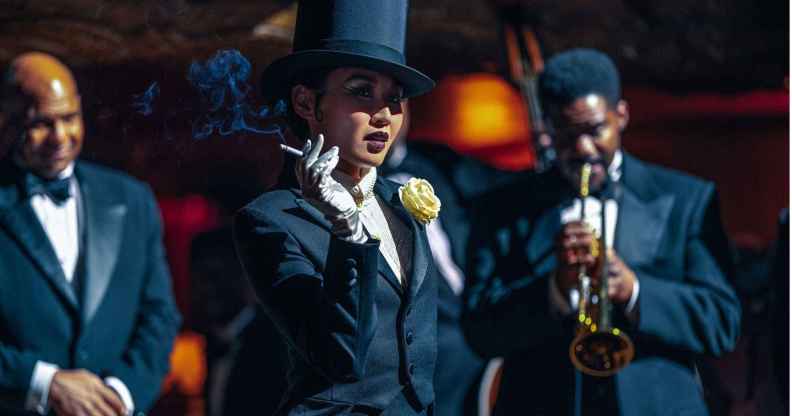
Li Jun Li as Lady Fay Zhu in Babylon (Scott Garfield/Paramount Pictures)
As Damien Chazelle’s Hollywood epic Babylon hits the big screen, breakout star Li Jun Li speaks to PinkNews about taking on the role of sapphic icon Anna May Wong.
Set in 1920s Los Angeles where decadence and depravity reign supreme, Babylon traces the rise and fall of several silver screen aspirants in the days of early Hollywood, including Lady Fay Zhu (Li Jun Li), a queer Chinese American performer at the top of her game.
“She’s definitely more of a badass than I am,” says Li, speaking exclusively to PinkNews. “I aspire to be her when I grow up.”
Loosely inspired by the iconic Chinese American actress Anna May Wong, who rose to become the first Asian American film star in Hollywood, Li was captivated by the idea of bringing her legacy to the big screen when she learned about the script three years ago.
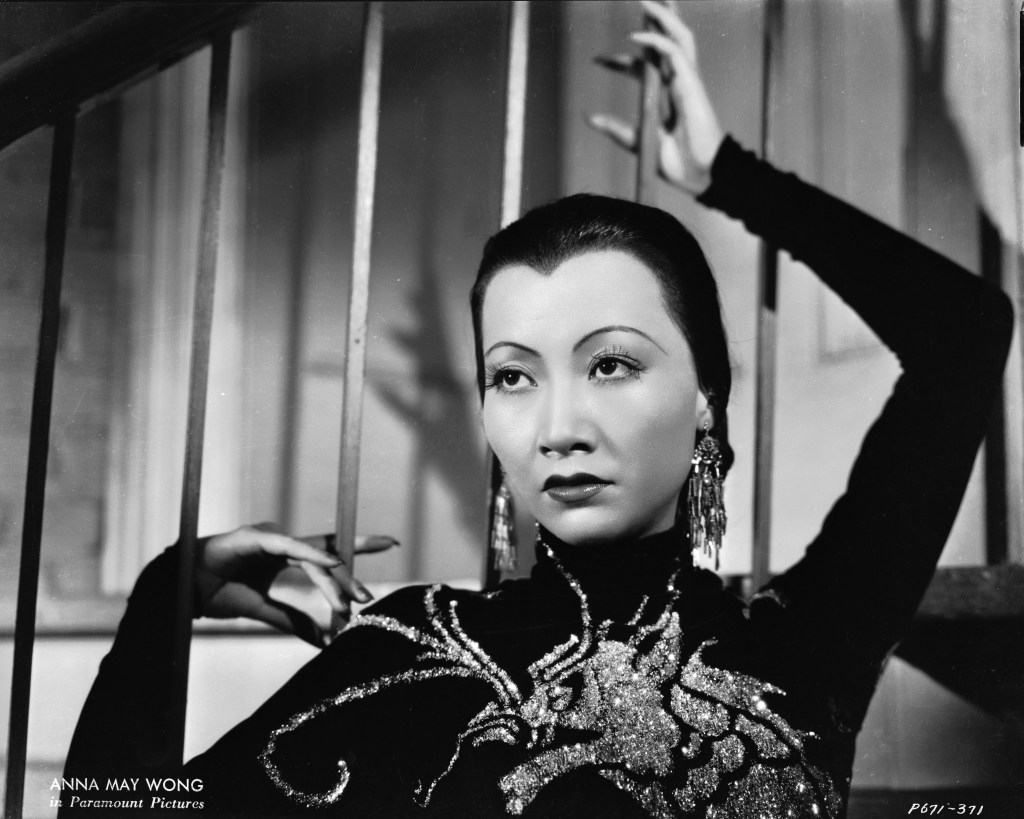
“I knew I had to get my hands on it,” says Li, whose turn as Lady Fay marks her first major role in a Hollywood blockbuster. “She played such a monumental figure in cinematic history that it was only ever going to be an honour for me to be able to portray even a fictional version of her.
“We [Chazelle and Li] built Fay together through trial and error. Everything from how she walks, her poise, where her voice sits, it all came together.”
A century after Wong shot to fame during Hollywood’s golden age, the groundbreaking star has since been claimed by the LGBTQ+ community as a gay icon. And while speculation still swirls around her sexuality, there can be no denying Lady Fay’s queerness in Babylon.
In the film, the cabaret singer’s sapphic inclinations are put centre stage when she performs a raunchy rendition of the 1930s hit My Girl’s Pussy.
The mammoth opening scene, which opens on a raucous party full of sex, drugs and flowing champagne, introduces us to the key players: rising starlet Nellie LaRoy (Margot Robbie), declining Hollywood superstar Jack Conrad (Brad Pitt), aspiring filmmaker Manny Torres (Diego Calva), and the lesbian chanteuse herself, Lady Fay.
Lady Fay’s entrance in a top hat and tails, Li explains, is a “pretty direct homage” to Marlene Dietrich’s number in the 1930 romance Morocco – one of countless references to old Hollywood throughout the film.
“I know you don’t get to see much of it in the final cut of the film, but there were a lot of changes based on Chazelle’s vision,” Li says of the set piece. “It was one of the most special and most memorable experiences.”
It’s not the only standout moment from Lady Fay, though. Halfway through the film, on the brink of stardom, Lady Fay meets Nellie LaRoy at a party, whose eagerness to make it in showbiz is eclipsed only by her devastatingly self-destructive tendencies. Needless to say, sparks fly.
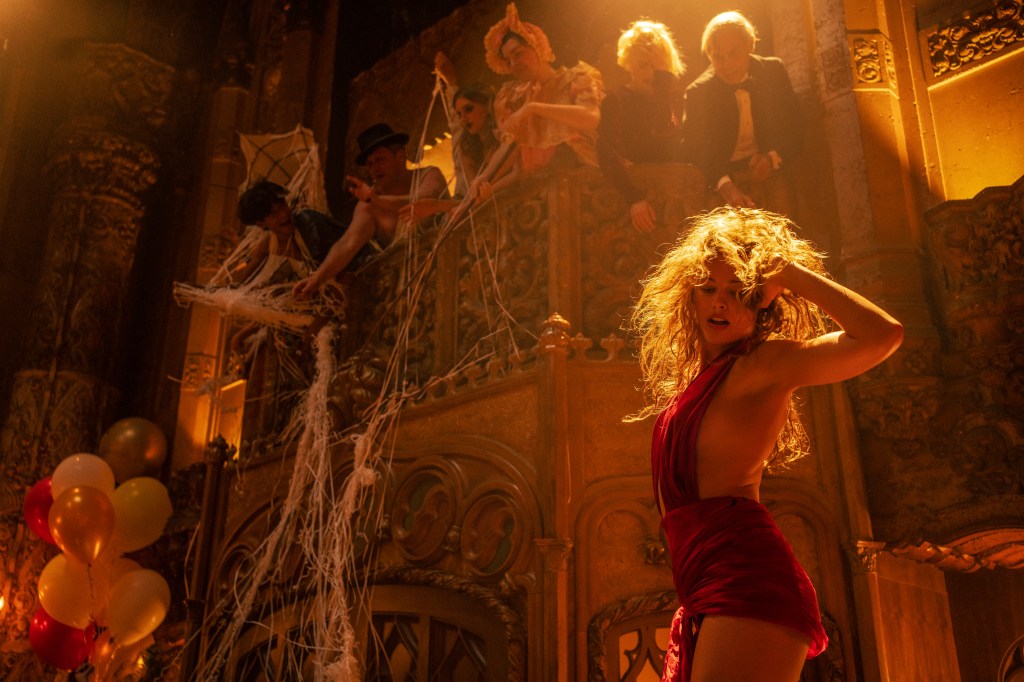
“I think Lady Fay has always had her eye on Nellie,” says Li, referring to one scene in which the pair perform a sexually-charged tango.
“There was a lot of spinning where you can see us kind of travel from one side of the pool to the other. And we wanted to translate that kind of tension through the choreography. Less is more.”
In one particularly dramatic scene, Nellie finds a rattlesnake sinking its fangs into her neck after challenging it to an ill-advised duel in the middle of the desert. Moments later, Lady Fay steps in to save the day by successfully slicing the snake in half and sucking deadly venom from Nellie’s bloodstream.
“We were in the desert at night, we were cold and it was very chaotic,” Li recalls.
“Margot had this prosthetic on her neck that contained a mixture of honey and water and I had to make her look badass. It makes it even more special that it all worked out”.
Despite the challenges of the scene, Li couldn’t be more complimentary of Robbie.
“I love Margot. I think she’s incredible. Not just talented, but so kind and so funny. So it was a really fun experience for both of us.”
In the film, Lady Fay also shares a unique bond with Jack Conrad (Brad Pitt), who is faced with the reality that the best years of his career are behind him.
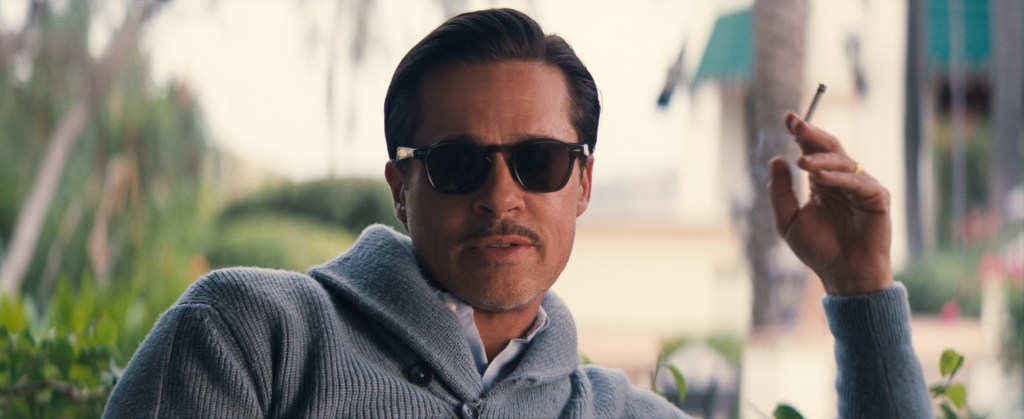
“Brad and I were talking about the fact that everyone else is selling their soul for the price of fame,” Li says of their characters’ relationship. “She is the only one who has been grounded throughout this entire journey.”
In the run up to Jack’s demise, the pair share one last poignant conversation before going their separate ways.
“I don’t think anyone else understands Jack the way Lady Fay does,” Li explains. “It was beautiful the way that he confides in her. They share that kind of a bittersweet memory of what it all was, now that it’s changing.
“Brad was so incredible and so captivating.”
While Lady Fay’s sexuality is an undisputed part of her identity in the film, her unfailing perseverance is ultimately no match for the racism and discrimination of the era, and she is ultimately pushed out of Hollywood. Nevertheless, Babylon makes sure to strike a balance between exploring the struggles a character like Lady Fay would have faced in her time, while never turning her into a victim.
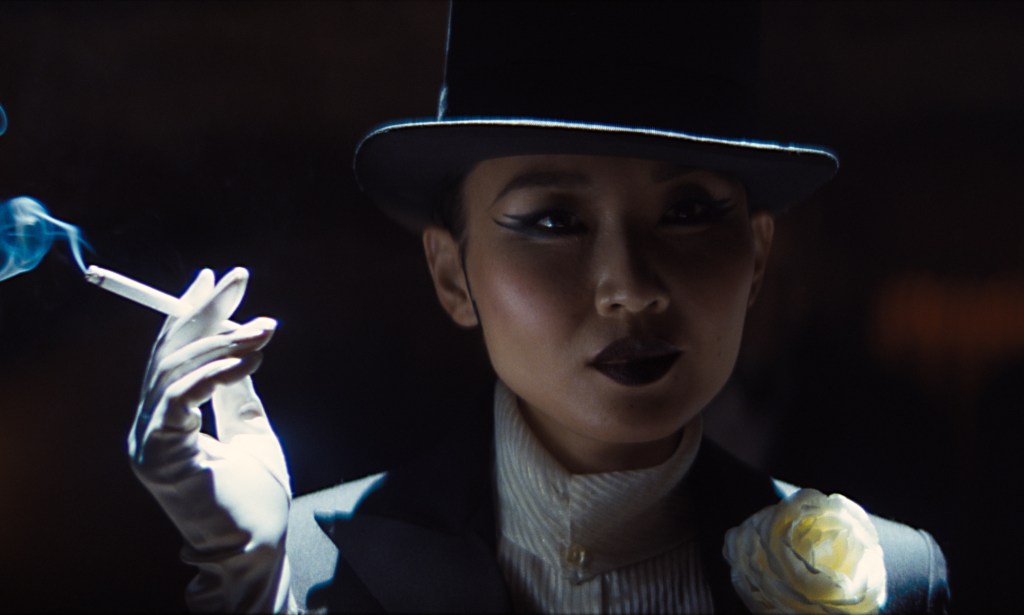
“People back then very much had to hide who they were for the sake of their career,” Li says of playing a queer minority. “How far were they willing to sacrifice values or morals to keep this career?
“I feel like it is more common but not every character is fleshed out as well as Lady Fay. We need to see that it existed back in the day and it exists now. We have to have a figure who is strong and relentless and is not willing to back down for anyone.”
These days, the world of film and television is vastly more diverse than when Wong was blazing a trail as Hollywood’s first Chinese American star. While Wong was largely alone in her struggles, Li can see the leaps and bounds the industry is making with AAPI representation, and is “thankful” for Asian American actresses such as Elementary’s Lucy Liu and the Golden Globe award-winning Michelle Yeoh who laid the foundations for her in the entertainment industry.
“Anna May Wong is the first one who paved the way, then you have these other greats [who] have since been fighting the same fight,” she says. “And they’re the reason why I’m here.”
As for how Li hopes she can make her mark on cinema-goers today, she is hopeful that the film will show that it’s “completely possible” for people to live authentically.
“We shouldn’t have anything holding us back and preventing us from being who we really are.”
Babylon is in cinemas now.
How did this story make you feel?

